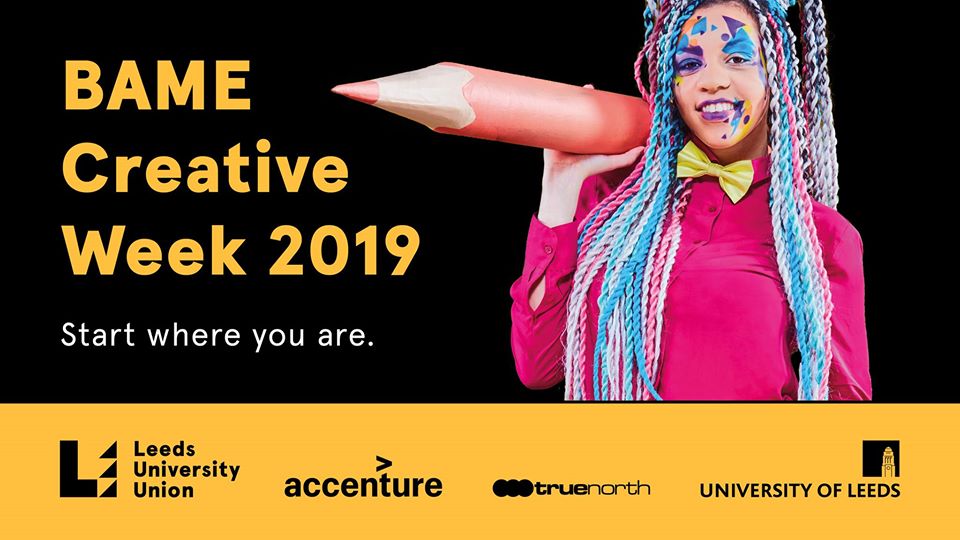This week Leeds University Union organised it’s first BAME creative week. This initiative aimed to inspire Black, Asian and other Ethnic Minority students who are pursuing a career in the creative industries. This week consisted of a series of talks and workshops with industry experts including singer Corrine Bailey-Rae, ‘The Receipts’ podcaster Tolani Shoneye and Head of Drama at Channel 4, Caroline Hollick.
I will go on to summarise my main takeaways from the week however, firstly I would like to thank all of those involved in the careful planning and execution this week. This event has empowered BAME creatives and offered us a unique insight tailored directly to us.
Many of the panellists shared with us their experience of micro-aggressions and naivetes within the workplace. For instance, the “Where are you from? No, where are you really from?”. It is important that we don’t let the micro-aggressions of others manifest into our own macro-aggressions. By this I mean, we should try our best to not just brush past, nor make a scene when we encounter these things, but rather educate the perpetrator and explain how and why these micro-aggressions are inappropriate.
We shouldn’t have to accept these microaggressions, but don’t let them deter you from putting yourselves in similar positions in the future. Nor should we blame a whole demographic for the actions of one ignorant member. In these instances, it is best to calmly educate and address the problem, and if you feel it has been taken too far contact HR and demand action be taken.
Another takeaway from this week is to not be deterred. This industry is built on self-confidence, in order to be seen and to be taken seriously you have to put yourself out there. Being tenacious, bold and authentic will serve you well. Do not diminish your cultural or ethnic identity in order to fit into the norm; the main reason we need BAME creatives is to ensure that everyone is represented.
So when we are finally in a position to make change we must do so, regardless if we are the only ones to push an idea. We must work at paving a pathway for our communities and other BAME creatives, so that we can break these barriers down.
Don’t be afraid to infuse your work with culture; that is what will make it unique and powerful. It is important that we do don’t water down our identities in order to fit the mould. Creative content designed for the masses is outdated, and narrow minded, and tailored only to the majority. It is our job as BAME creatives to break this mould so that audiences can see themselves being represented.
Moreover, our cultures are often being represented by people with no personal association to that culture. It is white men conjuring up ethnic characters, it is their vision that ethnic minorities are then preforming with little or no authority over the role. This is what leads to misrepresentation and vicious stereotypes being created. We need ethnic minorities to be in positions that allow them to tell their own stories for themselves.
Finally, and arguably most importantly, make use of the people around you and build connections. You are surrounded by BAME creatives and collaborating on projects is going to ensure the success of projects. It is important to share your talents and allow your voice to be heard, you will never be surrounded by so many BAME creatives again, use the free time you have to build your portfolios and brands whilst working with other.
I hope hearing the success stories of all the panellists involved this week have inspired you to pursue your career in this industry. There is no denying that as BAME creatives we face continuous obstacles, but it is crucial that we continue to persevere so that we can allow our voices to be heard and that we take ownership of what is rightfully ours.
Photo Credit: University of Leeds School of Media and Communications Facebook page

